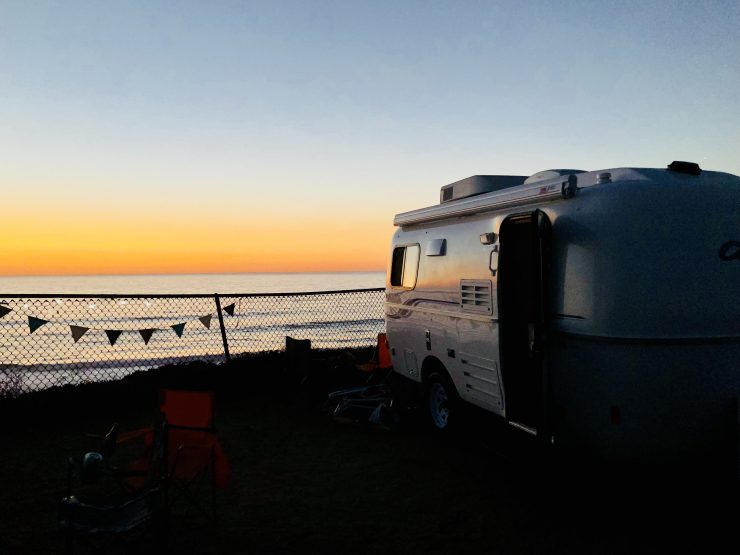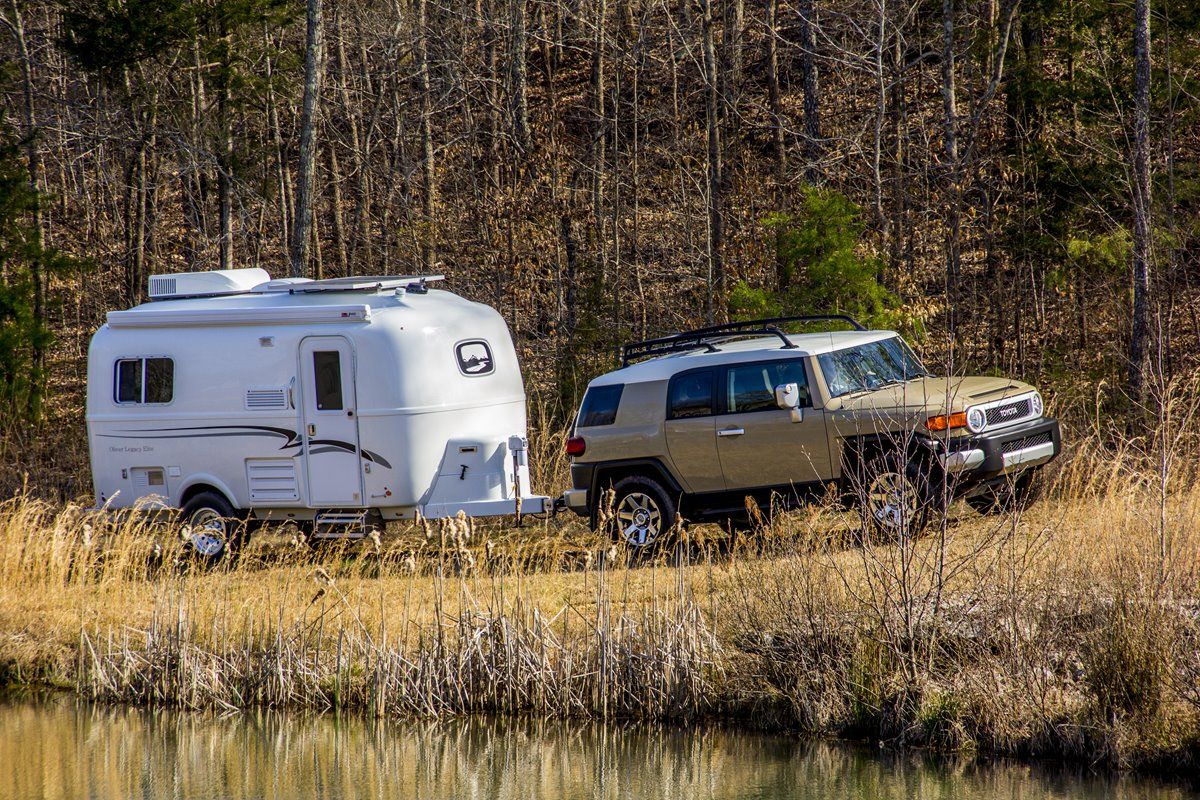You already know that living the van life really doesn’t require a van at all. If you’re ready to go all-in with life on the road, you’re going to want a proper travel trailer. Let me tell you why you should skip traditional aluminum trailers altogether. What you want — what you need — is a proper fiberglass travel trailer.
Companies like Winnebago and Airstream have made aluminum travel trailers part of our public consciousness for decades. Who hasn’t daydreamed of selling the house, tossing their knickknacks into storage, and hitting the road in a classic silver bullet? But, even Airstream is getting into the fiberglass game (see: the new Airstream Nest). Here’s why:
Fiberglass Is More Durable
Because traditional aluminum trailers are (of course) metal, their construction carries with it all the headaches of anything metal that’s left outdoors for months, and eventually years. Assuming you’re not the sort of hotshot who can afford to garage their 19-foot trailer, yours will be exposed to the elements. Rain, insects, and perhaps snow will seep into every conceivable nook and crevice. Your trailer will rust and corrode faster than you might expect. For the most part, fiberglass builds are more durable and easier to seal. A good fiberglass travel trailer like those from Scamp, Oliver, or Casita will almost always outlast their aluminum brethren.

Fiberglass Is Lighter
One of the most significant benefits of an all-fiberglass travel trailer is the weight; more importantly: the lack of it. The smallest in their class can easily be towed by a small SUV and, in many cases, any reasonably well-powered sedan or crossover vehicle. This is a huge boon if you would otherwise need to buy a high-powered truck to tow your new trailer. Just hook a fiberglass model to your Subaru and be on your way.
Fiberglass Is (Usually) Cheaper
Compared foot by foot — that is, similarly sized travel trailers — fiberglass trailers are usually less expensive. We’re generalizing here as many factors come into play when pricing out a trailer. Customizations can make a huge difference in the bottom line.

Fiberglass Holds Its Resale Value
Unless you plan on full-timing in your trailer for the foreseeable future, you’ll likely want to sell it when it’s outlived its usefulness. The good news is that they seriously hold their resale value. Where traditional aluminum trailers depreciate rapidly (some losing half their value or more in the first few years), it’s not uncommon to find a five-year-old Casita selling for just a few thousand dollars less than a comparable new model. This is, of course, great for sellers but not so great for buyers.
The one takeaway for those looking to live the (almost) van life for a while: buy a new fiberglass model, live in it, adventure, rock on … then sell it a year or so later for almost what you paid for it.


